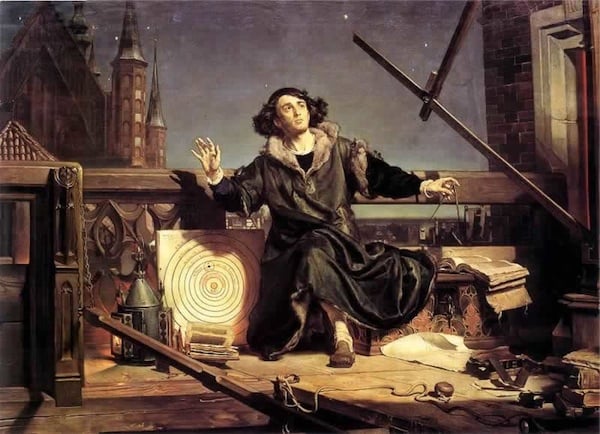
Neque enim ita mihi mea placent, ut no perpendam, quid alii de illis iudicaturi sint. Et quamuis sciam, hominis philosophi cogitationes esse remotas a iudicio uulgi, propterea quod illius studium sit veritatem omnibus in rebus, quatenus id a Deo rationi humane permissum est, inquirere, tamen alienas prorsus a rectitudine opiniones fugiendas censeo. Itaque cumecum ipse cogitatem, quam absurdum existimaturi essent illi, qui multorum seculorum iudiciis hanc opinione confirmatam norut, quod terra immobilis in medio coeli, tan quam centrum illius posita sit, si ego contra assererem terram moueri, diu mecum haesi, an meos comentrios in eius motus demonstrationem conscriptos in lucem darem…
For I am not so enamored of my own opinions that I disregard what others may think of them. I am aware that a philosopher’s ideas are not subject to the judgment of ordinary persons, because it is his endeavor to seek the truth in all things, to the extent permitted to human reason by God. Yet I hold that completely erroneous views should be shunned. Those who know that the consensus of many centuries has sanctioned the conception that the earth remains at rest in the middle of the heaven as its center would, I reflected, regard it as an insane pronouncement if I made the opposite assertion that the earth moves.
—Nicholas Copernicus, De revolutionibus orbium coelestium, dedicatory letter to Pope Paul III (1543)


